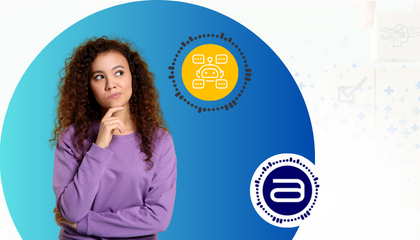Welcome to the exciting world of Generative AI, where every day brings forth new technological wonders! As we journey through 2024, we find ourselves witnessing an AI renaissance, where the possibilities are endless.
You’ve probably heard about OpenAI’s ChatGPT and Google’s Gemini, right? These incredible advancements in generative AI have been captivating minds since OpenAI unveiled ChatGPT back in November 2022. It quickly became the talk of the tech world, with “GenAI” dominating discussions throughout 2023.
In early 2023, Microsoft joined the fray, backing OpenAI with a significant investment to propel AI technology forward. Shortly after, in March 2023, Google made its move with Bard, later unveiling an improved version named Gemini in February 2024.
Both ChatGPT and Gemini have sparked immense interest in generative AI. They use data from machine learning models to create text, images, and videos that seem remarkably human-like. OpenAI and Google are constantly refining these large language models (LLMs) behind ChatGPT and Gemini to make them even more advanced.
Now, let’s talk about a recent report from Accenture that shines a light on how these advancements in generative AI, along with other Language Learning Models (LLMs), are set to transform healthcare. Here’s a glimpse of what the report found:
- 98% of healthcare providers and 89% of healthcare payer executives believe that generative AI will revolutionize enterprise intelligence.
- It’s estimated that about 40% of working hours in healthcare could benefit from language-based AI.
- Healthcare organizations are gearing up to leverage generative AI into their roadmap, with more than half planning pilot cases this year.
That is fascinating, isn’t it? Together, let’s look into this innovative research in-depth and discover the amazing possibilities of generative AI and LLMs in the healthcare industry and beyond.
Generative AI for Pharma
For the pharmaceutical industry, the ideal Generative AI transcends the ordinary. For professionals working with data and information, it’s not just a tool; it’s a strategic ally seamlessly integrating into existing workflows while catapulting the capabilities of healthcare professionals to unprecedented heights.
phamax is actively exploring the potential of generative AI within the pharmaceutical industry. Through recent discussions and thorough examination of use cases, we’ve identified numerous opportunities where generative AI can truly transform processes within the pharma sector.
From utilizing existing information sources like clinical trial data and research to generate value, to automating mundane tasks that consume time and efforts for Medical Affairs, and even creating marketing communication materials – that potential applications are vast.
The more we explore these options, the more obvious it is that generative AI is the secret to improved information access and streamlined processes. By leveraging the power of generative AI, phamax aims to drive innovation, enhance decision-making processes, and ultimately, improve outcomes for both patients and stakeholders within the pharmaceutical industry.
Accelerating Content generation with generative AI
The current process of content production is often unnecessarily complex and tedious. Adding to the complexity is the demand to meet compliance, demand for personalization, and the need to meet swift timelines. Content curation in the pharmaceutical industry holds immense potential for saving significant amounts of time and resources in generating content.

Moreover, content curation enables pharmaceutical companies to stay updated with the latest advancements, research findings, and regulatory changes in the industry. By curating relevant content from various sources, companies can maintain a comprehensive knowledge base that informs their decision-making processes and keeps them ahead of the curve in a rapidly evolving landscape.
Overall, content curation offers pharmaceutical companies a strategic advantage by optimizing time and resources, enhancing content quality, and facilitating informed decision-making, ultimately contributing to improved efficiency and effectiveness in the industry.
Querying Your Data Is Convenient with NLP
Generative AI emerges as a game-changer, liberating valuable time for professionals by revolutionizing the way they interact with data.
No longer bound by the complexities of intricate queries, team members can now engage in effortless conversations with their data. The introduction of natural language (NLP) queries transforms the process, allowing individuals to pose questions in plain language, unlocking insights with unprecedented ease. This not only streamlines the workflow but also democratizes data-driven decision-making, making valuable insights accessible to every member of the team.
The Shifting Role of Dashboards Today
In the realm of business intelligence, dashboards have been a steadfast companion for over two decades, offering leaders a visual gateway to invaluable data insights. However, despite their longstanding presence, the adoption of analytics has plateaued at a mere 30%. Shockingly, only 10% of executives believe their organizations have reached a level of analytics maturity, while a staggering 84% of frontline workers express dissatisfaction with their analytics experiences, yearning for more robust insights technology.
Here’s what we’ve come to realize:
- Dashboards, once hailed as the pinnacle of data communication, now find themselves amidst an ever-changing landscape where agility and adaptability reign supreme.
- While still relevant, dashboards are no longer the sole conduit for disseminating vital information across the business.
- Newer analytics features have emerged, complementing dashboards to cater to the evolving needs of modern business users.
This epiphany marks a pivotal moment in our journey:

Imagine:
- Seamlessly navigating complex datasets with ease, empowered to make informed decisions at the blink of an eye.
- Embracing a dynamic, interactive realm where raw data morphs into actionable insights, driving impactful actions across our organization.
Generative AI doesn’t just change reporting; it revolutionizes it, adapting to the dynamic needs of our professionals and catalyzing our journey from insight to impact. It’s more than data exploration; it’s a transformative voyage that reshapes the very essence of how we operate and lead in the ever-evolving landscape of business intelligence.
Centralized Information Access with AI
Generative AI revolutionizes information access for professionals in the pharmaceutical industry, providing a centralized platform where critical data and insights are readily available. By harnessing the power of AI, professionals can effortlessly navigate through vast repositories of information, ensuring swift access to the latest research findings, regulatory updates, and market trends. It’s not just about having data at your fingertips; it’s about empowering informed decision-making and driving strategic initiatives with confidence.
Fostering Collaboration with AI
Generative AI promotes collaboration among professionals in the pharmaceutical industry, breaking down barriers and encouraging cross-functional teamwork. It transcends mere process optimization, creating an atmosphere where diverse perspectives merge to spur innovative solutions. Generative AI serves as the impetus for brainstorming sessions, strategy meetings, and collaborative analyses. It’s not just a tool; it’s the catalyst for nurturing a culture of ongoing improvement among pharmaceutical professionals.
From Burdens to Benefits: Ariya for the Medical Affairs Team
Now, let’s weave the magic together – how Ariya leverages Generative AI to elevate burdens into a carnival of benefits for the Medical Affairs team
Time Optimization
The extensive volume of data and information required for medical content creation and communication demands meticulous processing and analysis efforts. Ensuring accessibility for both internal and external users adds another layer of complexity. However, the substantial commercial and scientific value derived from these internal repositories can significantly improve efficiency and leverage existing investments.
The implementation of AI-powered search capabilities swiftly establishes a comprehensive and easily accessible catalog of medical assets and specific pathologies, streamlining information processing and management. With the assistance of Generative AI, Medical Affairs.
With the assistance of Generative AI, Medical Affairs professionals can expedite data analysis, reducing the time required to review dense scientific documents, technical papers, and data summaries by up to 60%. Leveraging this technology simplifies the document review and analysis process, offering a more effective and time-saving approach compared to traditional manual methods.
Intuitive Decision-Making
Bid farewell to the era of wrestling with complex data queries. Ariya’s natural language interface becomes your partner in a dance with data, extracting insights effortlessly. It’s not just about saving time; it’s about democratizing data-driven decisions, and empowering every team member. Ariya transforms your team from analysts to artists, creating a masterpiece of collaborative healthcare management.
Seamless Integration
Ariya doesn’t disrupt; it enhances. The seamless integration with MS Teams ensures that incorporating Generative AI into your workflow is a smooth, harmonious process. Your existing PowerBI dashboard becomes a living entity, evolving with your needs. It’s not just integration; it’s a harmonious blend of technology with tradition, creating a symphony of enhanced workflow efficiency.
Conclusion
Today, Generative AI has emerged as the ally your Medical Affairs team needs. From optimizing time and making intuitive decisions to seamlessly integrating into existing workflows and fostering collaborative innovation, Generative AI propels your team from burdens to a myriad of benefits. Embrace the transformation; your success story starts now, as you embark on an epic journey with Ariya leading the way toward a future where Medical Affairs not only adapts but thrives in the ever-evolving healthcare landscape.
Imagine having a dedicated ally like Ariya at your side, ready to meet all your needs effortlessly. With our domain-trained AI, you’re not just getting a tool – you’re gaining an innovation partner. And now, with our Trial Launchpad, testing the power of generative AI in Pharma has never been easier. It’s about more than just convenience; it’s about empowering innovators like yourself to explore, discover, and unlock new possibilities. Trust us, with Ariya’s intuitive use cases, you’ll wonder how you ever managed without it.
To explore in-depth details about Ariya and its generative AI use cases, click here!







